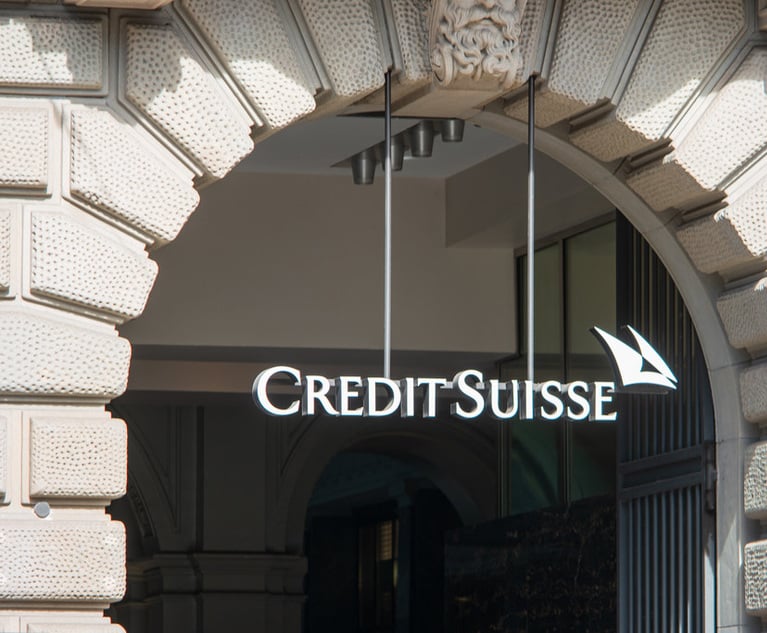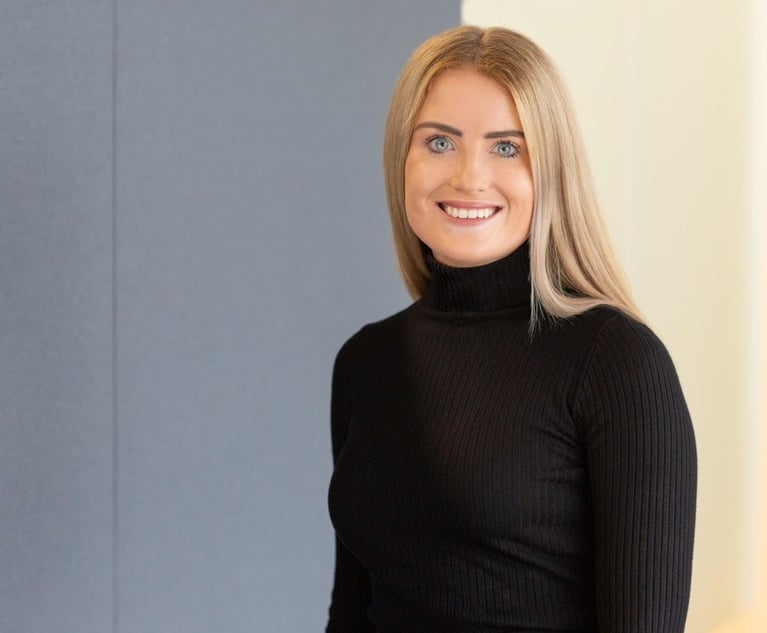 Shanghai masks. Photo: Qilai Shen
Shanghai masks. Photo: Qilai ShenChina Is Making Force Majeure Claims, Leaving General Counsel with Many Questions
Experts are telling clients they have three options: grant the exemption, fight it in court, or negotiate a compromise.
February 12, 2020 at 06:10 PM
4 minute read
The original version of this story was published on Corporate Counsel
As China struggles to control the impact of the coronavirus on its residents and its economy, general counsel around the world are deciding how to deal with Chinese companies that seek emergency exemptions from their contracts.
China reportedly has already certified some 100 businesses to invoke so-called force majeure exemptions from contract duties, citing the coronavirus outbreak as a qualifying disaster.
Experts told Law.com International affiliate Corporate Counsel on Wednesday that outside companies and their general counsel have three options: grant the exemption, fight the exemption in court, or try to negotiate a compromise.
"I feel like I'm dealing with this [coronavirus impact] 24/7," attorney Dan Harris, of Harris Bricken in Seattle, told Corporate Counsel. "It's all-consuming." Harris had just left a client meeting where they talked of force majeure.
The term generally refers to unexpected external circumstances that prevent a party to a contract from meeting their obligations, such as delivering goods or paying invoices, among other things. With over 700 million workers ordered to stay at home, many Chinese companies are making the legal claim.
Harris, a frequent contributor to his law firm's China Law Blog, said China has always used force majeure as an easy way out of a problem. "Suing is probably not going to be the way to go," he said.
If suing in China, Harris warned, a loss is very possible. If suing in the U.S. results in a win, China "will laugh in your face" when trying to enforce the judgment.
"The best way to go is to meet with the company in China and try to convince them, with money or otherwise, to put you first on their list" once business has resumed.
In the end, Harris said, "A lot of American and European companies are going to lose a lot of money and product over this. Some companies, here and in China, are going to disappear."
Various news reports support Harris' view. China's biggest importer of liquefied natural gas, China National Offshore Oil Corp., has invoked force majeure to suspend contracts, as have several Chinese copper buyers.
Harris raised the issue of insurance. "Coverage is going to depend on individual policies," he said, "but my guess is most won't pay. They'll say this isn't force majeure."
Another expert, Mark Duedall, a partner in the Atlanta office of Bryan Cave Leighton Paisner, recently blogged that the impact of the coronavirus "and its current effects on Asian and international supply chains are unprecedented."
Duedall, who could not immediately be reached for comment, wrote, "Unfortunately, no contract clause may be less scrutinized during the drafting process than the force majeure provision."
His blog said, "If widespread disease and a resulting quarantine can disrupt your supply chain, then you need to include specific and appropriate language in the agreements with those to which you supply goods, materials, or services."
Duedall advised general counsel to "use this opportunity to figure out what you must do now on existing contracts and matters, and also what you must do in the future to improve your drafting processes, mitigate your risk, price in the risk you are actually taking, or offload your risk to third parties."
He, like Harris, also recommended checking the company's insurance policies. "Clients are routinely surprised as to coverage they thought would be there, but is not—and coverage they never thought would exist, but does," Duedall wrote.
This content has been archived. It is available through our partners, LexisNexis® and Bloomberg Law.
To view this content, please continue to their sites.
Not a Lexis Subscriber?
Subscribe Now
Not a Bloomberg Law Subscriber?
Subscribe Now
NOT FOR REPRINT
© 2024 ALM Global, LLC, All Rights Reserved. Request academic re-use from www.copyright.com. All other uses, submit a request to [email protected]. For more information visit Asset & Logo Licensing.
You Might Like
View All
Japan’s Mori Hamada Joins Funder LCM for $150M Credit Suisse Bonds Claim


Squire Patton Boggs Associate Dies Following Methanol Poisoning in Laos
2 minute read
Setting Standards: Vanguard Australia's Sean Hughes on Moving From Government Regulator to Corporate General Counsel
6 minute readLaw Firms Mentioned
Trending Stories
Who Got The Work
Michael G. Bongiorno, Andrew Scott Dulberg and Elizabeth E. Driscoll from Wilmer Cutler Pickering Hale and Dorr have stepped in to represent Symbotic Inc., an A.I.-enabled technology platform that focuses on increasing supply chain efficiency, and other defendants in a pending shareholder derivative lawsuit. The case, filed Oct. 2 in Massachusetts District Court by the Brown Law Firm on behalf of Stephen Austen, accuses certain officers and directors of misleading investors in regard to Symbotic's potential for margin growth by failing to disclose that the company was not equipped to timely deploy its systems or manage expenses through project delays. The case, assigned to U.S. District Judge Nathaniel M. Gorton, is 1:24-cv-12522, Austen v. Cohen et al.
Who Got The Work
Edmund Polubinski and Marie Killmond of Davis Polk & Wardwell have entered appearances for data platform software development company MongoDB and other defendants in a pending shareholder derivative lawsuit. The action, filed Oct. 7 in New York Southern District Court by the Brown Law Firm, accuses the company's directors and/or officers of falsely expressing confidence in the company’s restructuring of its sales incentive plan and downplaying the severity of decreases in its upfront commitments. The case is 1:24-cv-07594, Roy v. Ittycheria et al.
Who Got The Work
Amy O. Bruchs and Kurt F. Ellison of Michael Best & Friedrich have entered appearances for Epic Systems Corp. in a pending employment discrimination lawsuit. The suit was filed Sept. 7 in Wisconsin Western District Court by Levine Eisberner LLC and Siri & Glimstad on behalf of a project manager who claims that he was wrongfully terminated after applying for a religious exemption to the defendant's COVID-19 vaccine mandate. The case, assigned to U.S. Magistrate Judge Anita Marie Boor, is 3:24-cv-00630, Secker, Nathan v. Epic Systems Corporation.
Who Got The Work
David X. Sullivan, Thomas J. Finn and Gregory A. Hall from McCarter & English have entered appearances for Sunrun Installation Services in a pending civil rights lawsuit. The complaint was filed Sept. 4 in Connecticut District Court by attorney Robert M. Berke on behalf of former employee George Edward Steins, who was arrested and charged with employing an unregistered home improvement salesperson. The complaint alleges that had Sunrun informed the Connecticut Department of Consumer Protection that the plaintiff's employment had ended in 2017 and that he no longer held Sunrun's home improvement contractor license, he would not have been hit with charges, which were dismissed in May 2024. The case, assigned to U.S. District Judge Jeffrey A. Meyer, is 3:24-cv-01423, Steins v. Sunrun, Inc. et al.
Who Got The Work
Greenberg Traurig shareholder Joshua L. Raskin has entered an appearance for boohoo.com UK Ltd. in a pending patent infringement lawsuit. The suit, filed Sept. 3 in Texas Eastern District Court by Rozier Hardt McDonough on behalf of Alto Dynamics, asserts five patents related to an online shopping platform. The case, assigned to U.S. District Judge Rodney Gilstrap, is 2:24-cv-00719, Alto Dynamics, LLC v. boohoo.com UK Limited.
Featured Firms
Law Offices of Gary Martin Hays & Associates, P.C.
(470) 294-1674
Law Offices of Mark E. Salomone
(857) 444-6468
Smith & Hassler
(713) 739-1250









